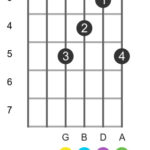For years, the narrative surrounding music games has been dominated by the Activision versus MTV Games saga, the celebrated clash between Guitar Hero and Rock Band. Passionate gamers often took sides, fueling debates about franchise supremacy and even the minutiae of guitar controller strum bars. But for someone like me, deeply involved in game development at Harmonix since 2001, the perspective is far more nuanced. Having produced the original Guitar Hero and led Guitar Hero II before transitioning to Rock Band, I find it difficult to engage in simple comparisons. Guitar Hero is woven into my professional DNA, and that of many colleagues at Harmonix. I remember brainstorming character names, drawing inspiration for venue locations from friends’ band practice spaces, and selecting concert poster artists for in-game visuals. I even demoed the initial Guitar Hero concept at E3 2005 in a humble corner of Kentia Hall, armed with a precariously hung poster – an event where few foresaw the cultural wave it would become. The early Guitar Hero games are imbued with our personalities and passions. So, when I hear discussions about Rock Band‘s superiority over Guitar Hero, it evokes a strange sense of introspection. My memories of crafting those early Guitar Hero experiences are filled with fondness and pride.
The transition from Guitar Hero to Rock Band is often misconstrued. Contrary to articles suggesting Rock Band was born purely out of competition with Guitar Hero, its creation was a natural evolution. We envisioned Rock Band as the next logical step, expanding beyond a single instrument to a full band experience. This broadened musical interactivity significantly, enriching players’ connection to music and, crucially, their interactions with each other. The concept of simulating a full band – drums, bass, vocals, personalized avatars – proved far more engaging than just a guitar-centric game. Rock Band was conceived and built as a distinct entity, aiming to be the ultimate band simulation, not merely a Guitar Hero rival.
Reflecting on my Harmonix Guitar Hero years, beyond the games themselves, certain core memories stand out:
- The sheer joy of the creative process. Making Guitar Hero was an incredibly rewarding experience.
- The exceptional team behind it. The talent and dedication of the people were remarkable.
- The enduring connections. I continue to collaborate with many of these same individuals today.
![alt text: Harmonix team members who led the development of Guitar Hero in 2005, showcasing the early team responsible for creating the iconic music game.]
![alt text: A 2015 photo of Harmonix team leaders, highlighting the continuity and evolution of the team from the Guitar Hero era to later projects.]
The teams that shaped Guitar Hero and Guitar Hero II are virtually a roll call of the Rock Band 4 team. While not everyone remained or transitioned to the new Rock Band, many key contributors – artists, musicians, programmers, and gameplay designers – are still integral. Alongside these veterans are talented newcomers, yet the Rock Band 4 team atmosphere resonates with the vibrant energy of those early game development days. This feeling – the conviction of working on something groundbreaking, a shared team confidence – is what I cherish most.
Game development, like other creative endeavors, mirrors the spirit of its contributors. Successful teams thrive on creative, committed individuals empowered to make sound decisions autonomously. This principle has been a cornerstone of Harmonix’s game development philosophy, from FreQuency in 2001 and Amplitude in 2003, through Guitar Hero in 2005, Rock Band in 2007, and continuing with Rock Band 4 in 2015. Our enduring mission at Harmonix has been to create unparalleled interactive music experiences.
My enthusiasm for Rock Band 4 is immense, believing it to be our finest creation yet, setting a new benchmark for music games. However, the resurgence of music gaming is a broader victory. Activision’s revival of Guitar Hero validates the timing of Rock Band‘s return, signaling a renewed appetite for music games and rock music in popular culture. My greatest hope is to see music gaming reclaim its prominent position in the entertainment landscape. And I sincerely hope the development team at Activision crafting the new Guitar Hero is experiencing the same exhilarating creative journey we are. Long live rock and roll, and long live the spirit of the guitar heroes these games inspire!

